
Tirana: The Heartbeat of Albania
Nestled between mountains and the Adriatic Sea, Tirana is a charming city that blends the past with the present. The capital of Albania, Tirana is known for its vibrant culture, colorful buildings, and warm hospitality. Start your journey in Skanderbeg Square, the city's main plaza, surrounded by important landmarks such as the National History Museum and the Et'hem Bey Mosque. The square is a hub of activity, perfect for people-watching and soaking up the local atmosphere. Take a stroll down the bustling streets of Blloku, once restricted to the communist elite, now a trendy neighborhood filled with cafes, restaurants, and shops. Here, you can taste traditional Albanian cuisine or sip coffee at one of the many stylish cafes. The Pyramid of Tirana, an enigmatic relic of the communist era, is another must-see attraction, offering a unique glimpse into the city's complex history. For nature lovers, the Grand Park of Tirana provides a serene escape from the urban hustle. This expansive green space features a beautiful artificial lake, picnic spots, and walking trails. Don't miss the Dajti Mountain National Park, accessible by a scenic cable car ride, where you can enjoy breathtaking views of the city and the surrounding landscape. Tirana's lively markets, like Pazari i Ri, offer a chance to mingle with locals and purchase fresh produce, handmade crafts, and souvenirs. Tirana's nightlife is equally exciting, with a range of options from cozy bars to vibrant nightclubs. The city is also a cultural hub, hosting numerous festivals, art exhibitions, and performances throughout the year. Whether you're a history buff, a foodie, or an adventure seeker, Tirana promises a memorable experience.
Local tips in Tirana
- Visit Skanderbeg Square early in the morning to avoid the crowds and capture the best photos.
- Try byrek, a traditional Albanian pastry, for a delicious and affordable snack.
- Use local buses and taxis to get around; they are affordable and convenient.
- Learn a few basic Albanian phrases to enhance your interactions with locals.
- Check out the Bunk'Art museums for a unique look at Albania's communist past.
Neighbourhoods in Tirana
Tirana: The Heartbeat of Albania
Nestled between mountains and the Adriatic Sea, Tirana is a charming city that blends the past with the present. The capital of Albania, Tirana is known for its vibrant culture, colorful buildings, and warm hospitality. Start your journey in Skanderbeg Square, the city's main plaza, surrounded by important landmarks such as the National History Museum and the Et'hem Bey Mosque. The square is a hub of activity, perfect for people-watching and soaking up the local atmosphere. Take a stroll down the bustling streets of Blloku, once restricted to the communist elite, now a trendy neighborhood filled with cafes, restaurants, and shops. Here, you can taste traditional Albanian cuisine or sip coffee at one of the many stylish cafes. The Pyramid of Tirana, an enigmatic relic of the communist era, is another must-see attraction, offering a unique glimpse into the city's complex history. For nature lovers, the Grand Park of Tirana provides a serene escape from the urban hustle. This expansive green space features a beautiful artificial lake, picnic spots, and walking trails. Don't miss the Dajti Mountain National Park, accessible by a scenic cable car ride, where you can enjoy breathtaking views of the city and the surrounding landscape. Tirana's lively markets, like Pazari i Ri, offer a chance to mingle with locals and purchase fresh produce, handmade crafts, and souvenirs. Tirana's nightlife is equally exciting, with a range of options from cozy bars to vibrant nightclubs. The city is also a cultural hub, hosting numerous festivals, art exhibitions, and performances throughout the year. Whether you're a history buff, a foodie, or an adventure seeker, Tirana promises a memorable experience.
When is the best time to go to Tirana?
Iconic landmarks you can’t miss
Skanderbeg Square
Discover Skanderbeg Square in Tirana: a vibrant hub of Albanian history, culture, and modern life, surrounded by iconic landmarks.
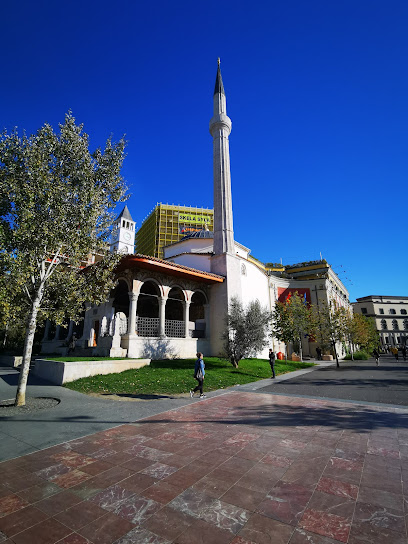
Bunk'Art 2
Explore Albania's communist past in a former nuclear bunker in the heart of Tirana. A chilling and immersive historical experience.
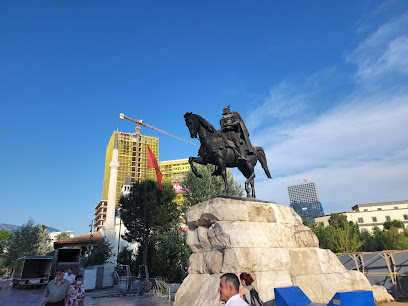
Tirana Park
Escape the city bustle in Tirana's largest green space, offering a serene lake, botanical wonders, historical monuments, and cultural events.
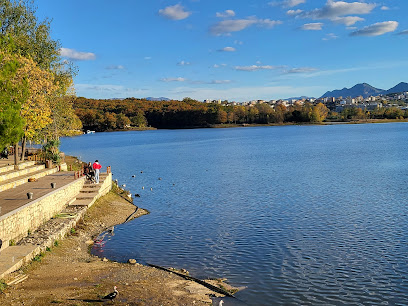
Pyramid of Tirana
Explore Tirana's iconic Pyramid: From communist monument to modern hub for youth, technology, and culture. Free entry, climbable structure, panoramic views.
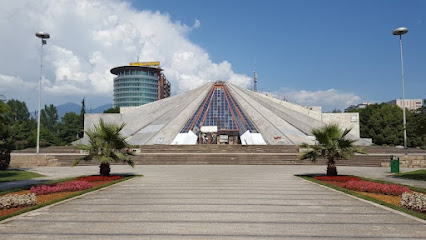
BUNK'ART
Explore Albania's communist past in a massive underground bunker, now a unique historical and art center. A must-see for history buffs!
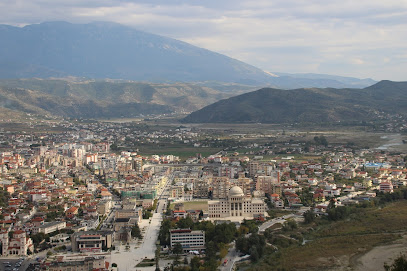
National Historical Museum
Explore Albania's rich past at the National Historical Museum in Tirana, from ancient civilizations to modern times.
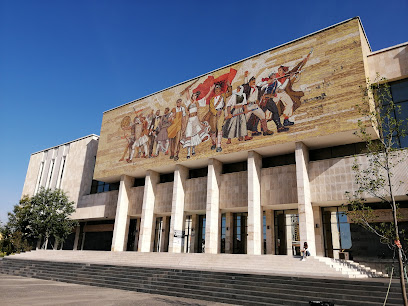
Et'hem Bej Mosque
Discover Tirana's historic Et'hem Bey Mosque: a symbol of resilience, religious freedom, and unique Ottoman-Albanian artistry in the heart of Skanderbeg Square.
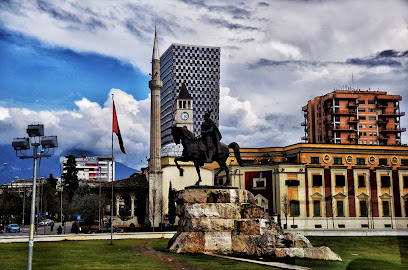
Tirana Castle
Explore Tirana Castle: A blend of Byzantine, Ottoman, and Albanian history in the heart of Tirana. Discover cultural treasures and culinary delights.
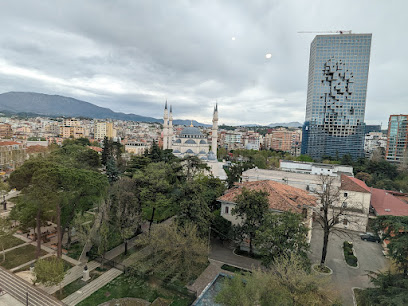
House of Leaves Museum
Explore Albania's chilling past at the House of Leaves, a museum dedicated to the secret surveillance of the communist era.
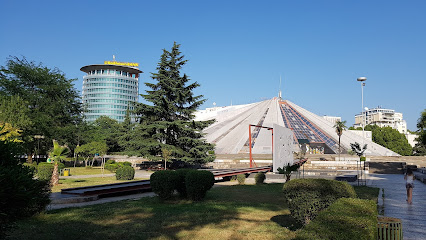
Tanners' Bridge
Step back in time on Tirana's Tanners' Bridge, an 18th-century Ottoman relic and pedestrian haven, linking the city's vibrant past to its present.
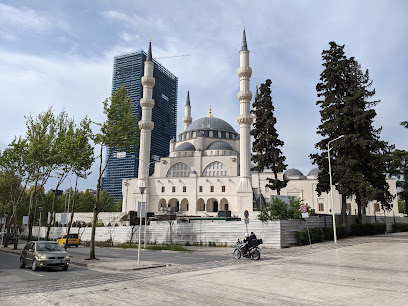
Resurrection of Christ Orthodox Cathedral
Discover Tirana's spiritual heart at this magnificent cathedral, a symbol of faith's revival and a testament to Albania's rich cultural heritage.
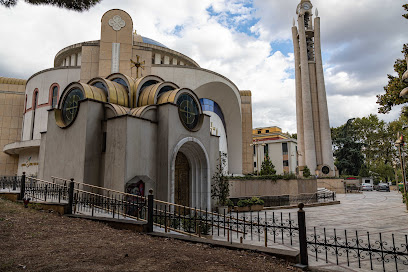
Petrela Castle
Explore a historic Albanian castle with stunning views, rich history, and traditional cuisine, just a short trip from Tirana.
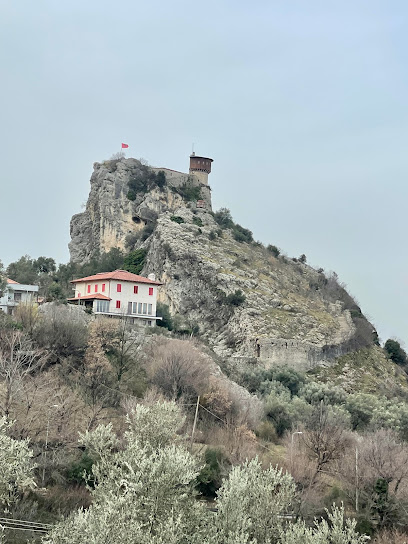
Dajti Ekspres
Experience panoramic views of Tirana with a scenic cable car ride to Dajti Mountain, offering recreation and natural beauty.
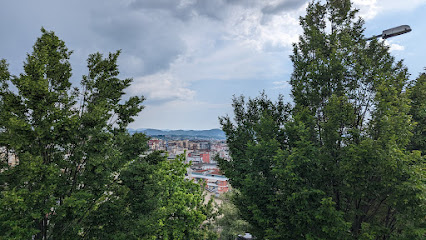
The Cloud
Discover The Cloud in Tirana, an architectural marvel blending art and culture, offering stunning views and a unique experience in Albania's capital.
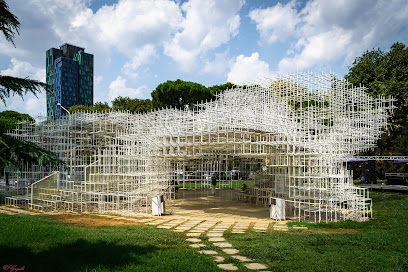
Checkpoint
A powerful memorial in Tirana commemorating Albania's communist past and honoring the resilience of its people.
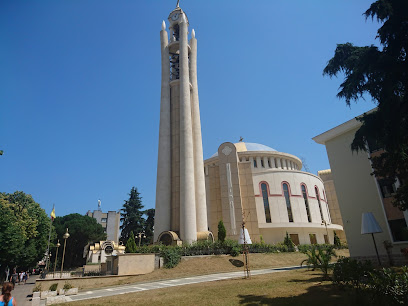
Unmissable attractions to see
Skanderbeg Square
Discover the vibrant culture and history at Skanderbeg Square, the heart of Tirana, where past and present beautifully converge.
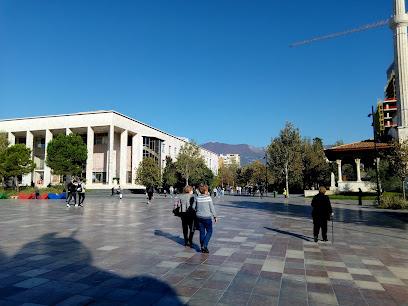
Castle of Kruja
Explore Kruja Castle: a symbol of Albanian resistance, offering history, stunning views & cultural immersion in a medieval setting.
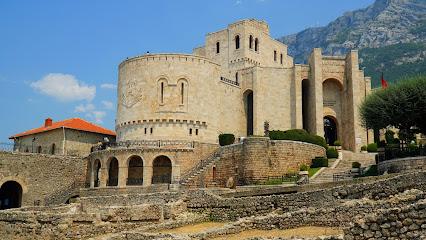
Bunk'Art 2
Explore Albania's hidden history in a former Cold War bunker, revealing the secrets of the communist regime and the Sigurimi secret police.
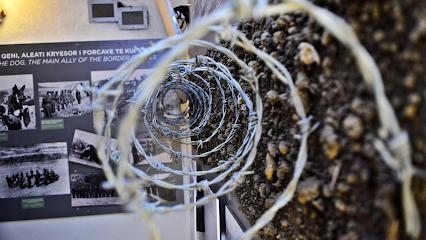
Tirana Park
Escape the city bustle in Tirana's Grand Park: a green haven with a lake, gardens, and historical monuments for all to enjoy.
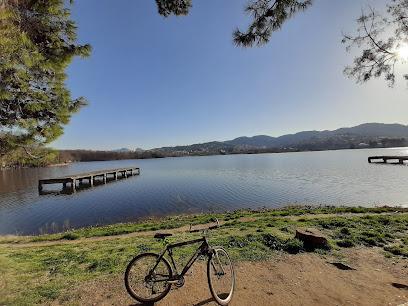
Durrës Amphitheatre
Discover the ancient Durrës Amphitheatre, the largest Roman arena in the Balkans, and explore Albania's captivating Roman and Christian history.
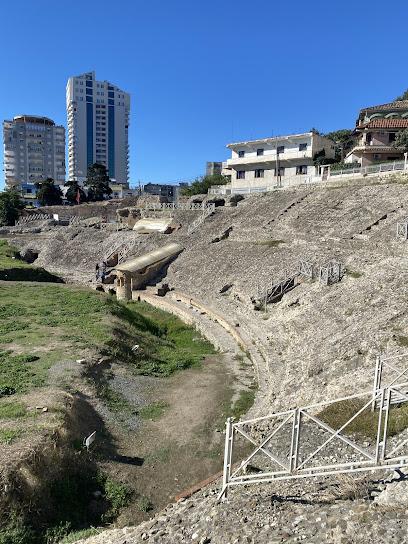
Pyramid of Tirana
Discover the Pyramid of Tirana, a historical landmark intertwining culture and history in the heart of Albania's capital.
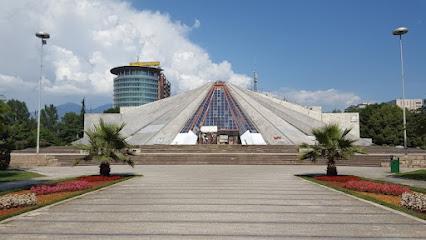
Rinia Park
Escape to Rinia Park in Tirana: A green oasis offering relaxation, recreation, and vibrant cultural experiences in the heart of the city.
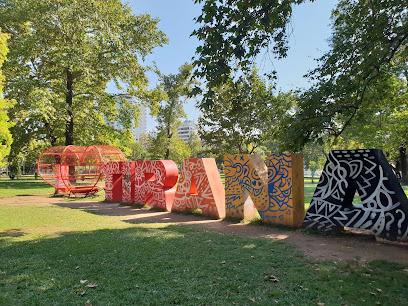
BUNK'ART 1
Explore Albania's communist past in a former top-secret nuclear bunker. A unique historical and art experience on the outskirts of Tirana.
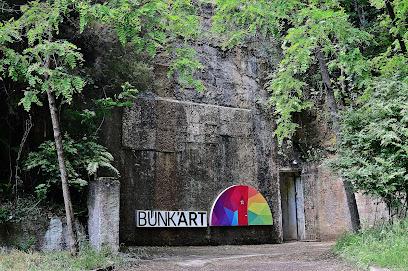
Et'hem Bej Mosque
Discover Tirana's historical Et'hem Bey Mosque: Admire unique frescoes & experience Albania's Ottoman and religious heritage on Skanderbeg Square.

National Historical Museum
Explore Albania's rich past at the National Historical Museum in Tirana, from ancient civilizations to the modern era.
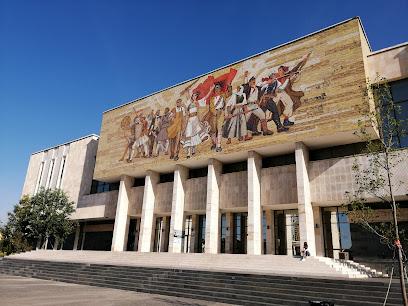
Venetian Tower of Durrës
Explore the Venetian Tower in Durrës: A historic landmark offering panoramic views and a glimpse into Albania's rich past.
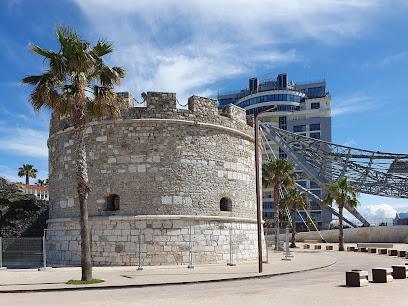
House of Leaves Museum
Explore Albania's chilling past at the House of Leaves Museum, a memorial to the victims of communist-era surveillance and repression.
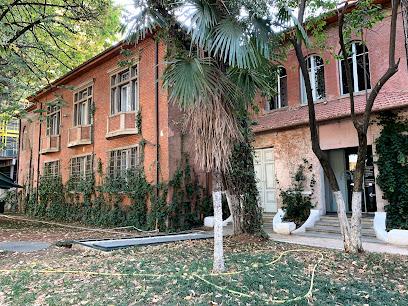
Gjergj Kastrioti National Museum (Skanderbeg)
Explore Albanian history and honor the legendary Skanderbeg at this museum within the historic Krujë Castle. A symbol of resistance and national pride.
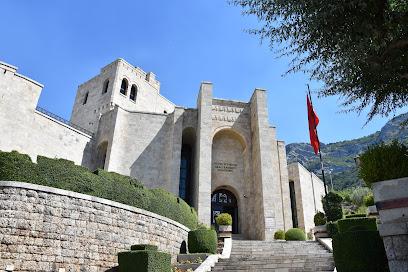
Tanners' Bridge
Discover the historic Tanners' Bridge in Tirana, an Ottoman-era landmark connecting the city's past with its vibrant present.
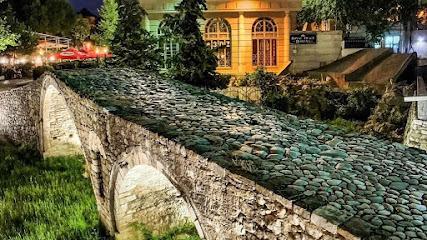
Sfinksi
Experience the allure of Sfinksi in Durrës: where modern architecture meets stunning sea views on Albania's vibrant coast.
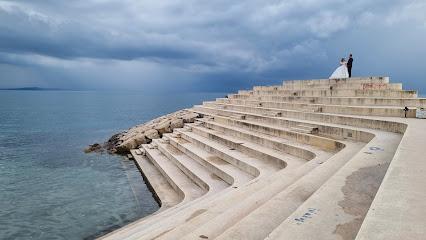
Essential places to dine
Oda - Traditional Albanian Restaurant
Discover authentic Albanian flavors at Oda, where tradition meets taste in every delightful dish.
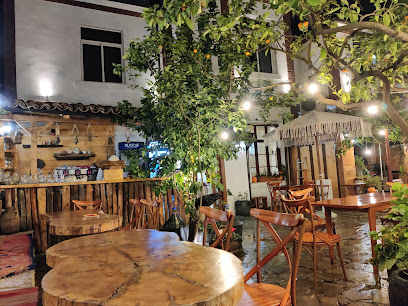
Oda Garden
Experience authentic Albanian cuisine at Oda Garden in Tirana, where tradition meets flavor in a charming setting.
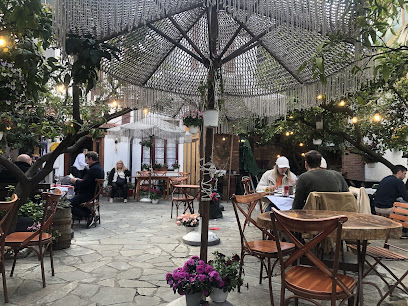
Artigiano at Vila
Discover the flavors of Italy blended with Mediterranean flair at Artigiano at Vila in Tirana.
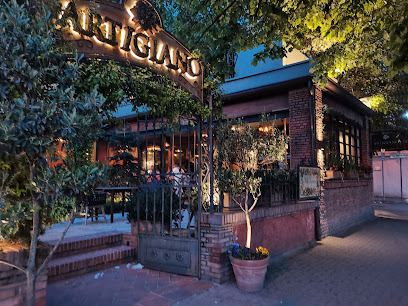
Artigiano
Discover Artigiano in Tirana: A delightful fusion of Italian flavors and Mediterranean delights awaits you!
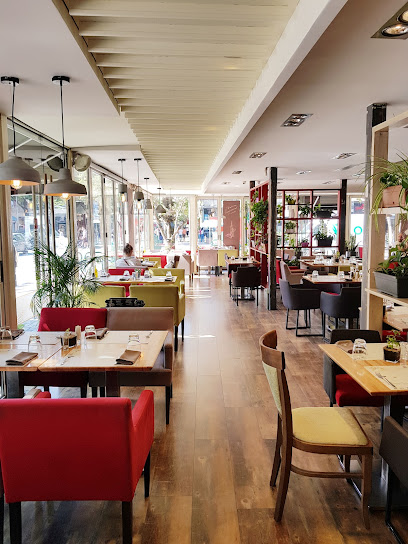
Era Vila
Experience authentic Albanian cuisine at Era Vila in Tirana – where tradition meets flavor in every dish.
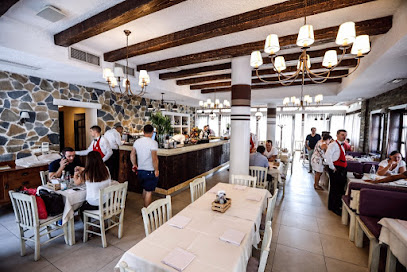
Mullixhiu
Experience authentic Albanian flavors at Mullixhiu - where tradition meets culinary excellence near Tirana's Artificial Lake.
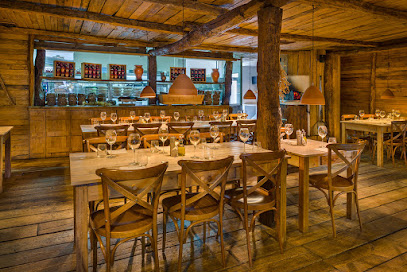
Salt Tirana
Discover exquisite flavors and innovative cocktails at Salt Tirana – where culinary artistry meets vibrant ambiance in Albania's capital.
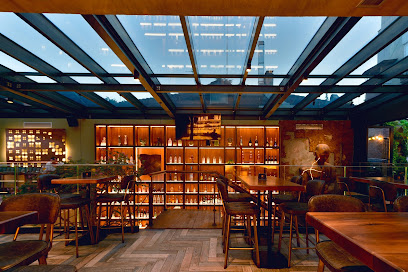
La Gioia
Experience authentic seafood dining at La Gioia in Tirana - where fresh flavors meet warm hospitality in a charming setting.
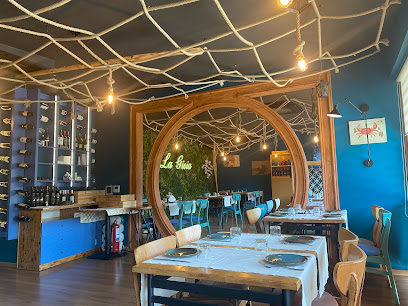
Shije Fshati - Taste of the Village
Savor authentic Albanian cuisine at Shije Fshati in Tirana – where traditional flavors meet warm hospitality.
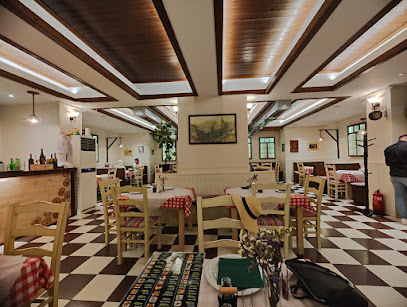
Rozafa Sea Food
Experience exquisite seafood dining at Rozafa Sea Food in Tirana—where every dish reflects the beauty of Albanian coastal flavors.
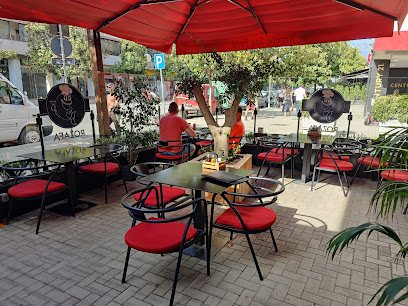
Kripë dhe Piper
Discover Kripë dhe Piper in Tirana: A Culinary Delight Featuring Italian, Mediterranean & Seafood Specialties.
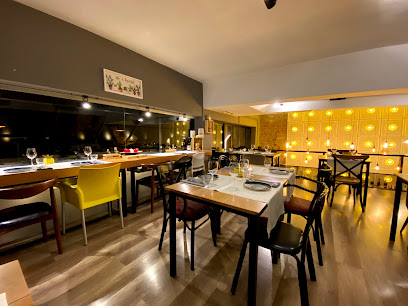
Zgara Supreme 2
Discover authentic Albanian barbecue at Zgara Supreme 2 in Tirana – where flavor meets tradition in a vibrant setting.
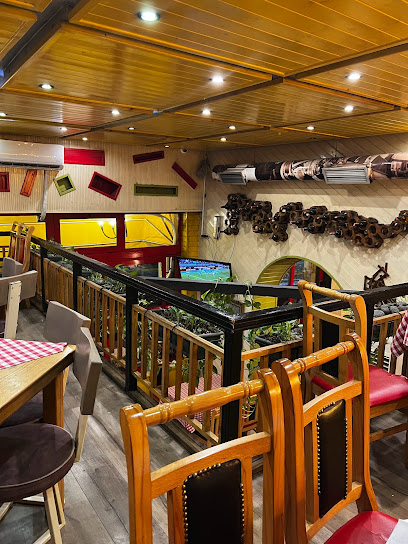
Zgara e Tironës 2
Discover the flavors of Albania with delicious grilled meats and warm hospitality at Zgara e Tironës 2 in Tirana.
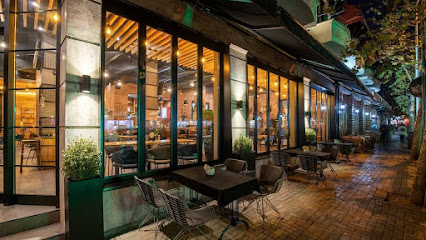
il Gusto Ristorante
Discover exceptional seafood dining at il Gusto Ristorante in Tirana – where every dish tells a story of flavor and tradition.
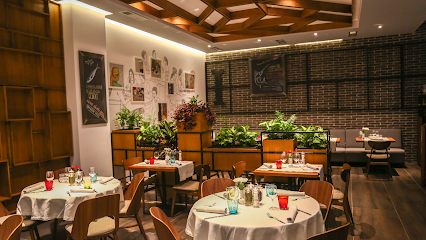
Mrizi i Zanave Tirane
Experience authentic Albanian cuisine at Mrizi i Zanave in Tirana – where tradition meets modern culinary artistry.
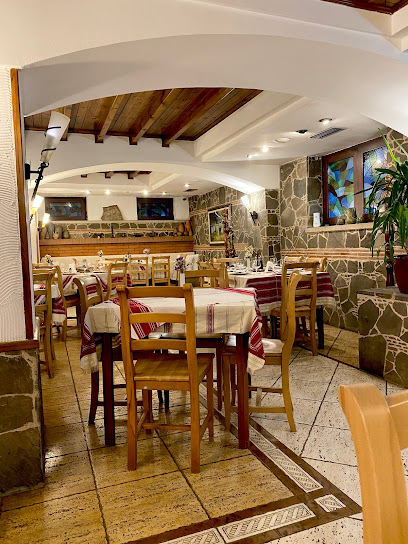
Markets, malls and hidden boutiques
Toptani
Discover Toptani, Tirana's vibrant shopping mall, where local charm meets international brands in a modern setting.
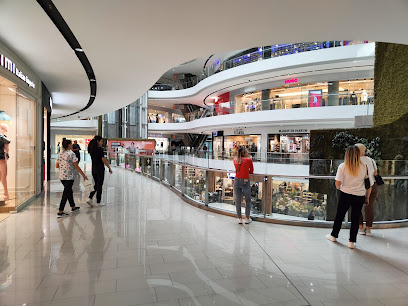
COIN Tirana
Explore the vibrant shopping experience at COIN Tirana, where local charm meets modern retail in the heart of Albania's capital.
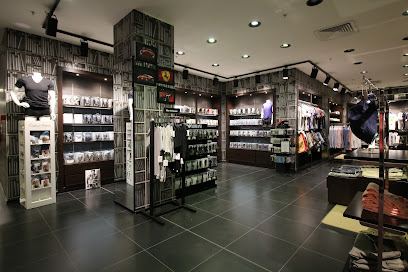
Artifiko Gift Shop
Discover unique Albanian gifts at Artifiko Gift Shop in Tirana, where craftsmanship meets culture, perfect for tourists seeking authentic souvenirs.
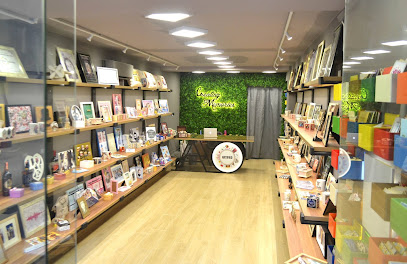
ViaAnabel
Explore the eclectic charm of ViaAnabel, a unique consignment shop in Tirana, where vintage treasures and sustainable fashion await.
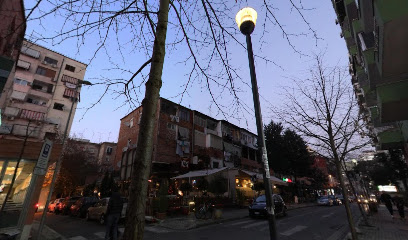
Dea Souvenir Main Shop
Discover the essence of Albania at Dea Souvenir Main Shop, your destination for authentic handcrafted souvenirs in Tirana.
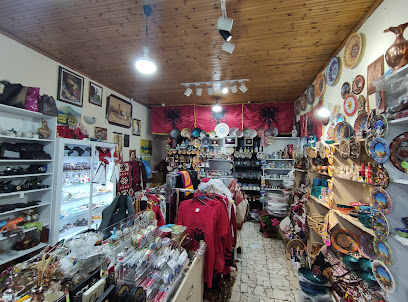
Souvenir Albania
Explore Souvenir Albania in Tirana for a wide selection of authentic crafts and gifts that embody the culture and spirit of Albania.
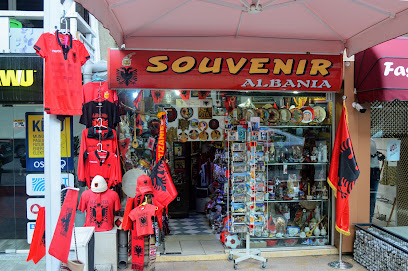
The Vintage God
Explore the charm of vintage fashion at The Vintage God in Tirana, where each piece has a story waiting to be discovered.
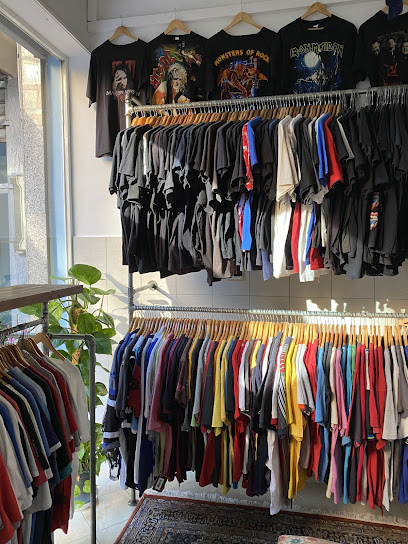
Boutique Obsession
Discover unique fashion pieces at Boutique Obsession, a stylish clothing store in Tirana, Albania, where local culture meets contemporary trends.
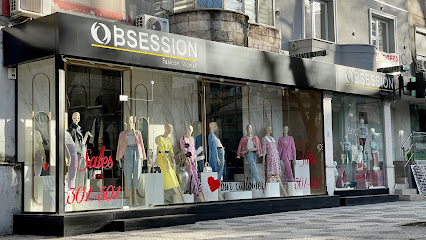
Albania Shopping
Explore Albania Shopping in Tirana for a unique blend of local and international shopping experiences, dining, and vibrant culture.
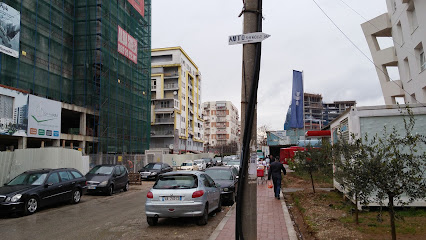
Vintage & More
Explore Tirana's Vintage & More - a treasure trove of unique clothing that captures the essence of local style and culture.
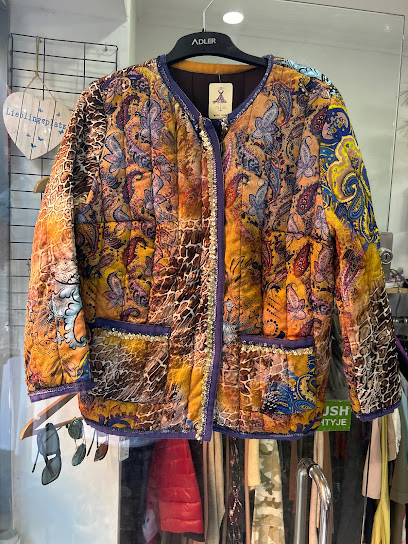
ETHNIC ACCESSORY / ACCESSORIES / PIERCING
Explore Ethnic Accessory in Tirana for unique fashion accessories and authentic Albanian crafts that capture the spirit of Albania.
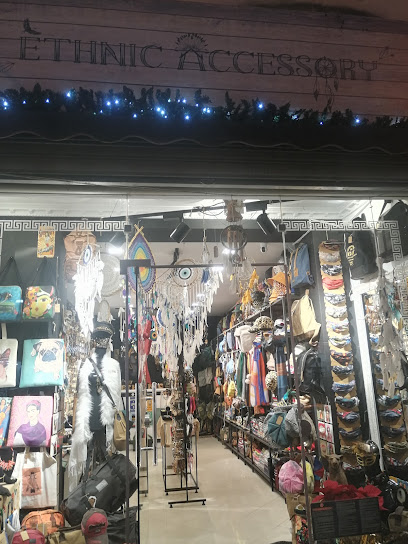
Dyqan Antikuare & Artistike
Explore the enchanting world of antiques and art at Dyqan Antikuare & Artistike in Tirana, Albania, where every item has a story to tell.
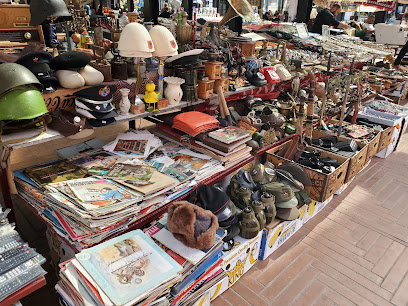
Tirana Store
Discover the essence of Albanian fashion at Tirana Store, your go-to destination for stylish clothing and unique accessories in Tirana.
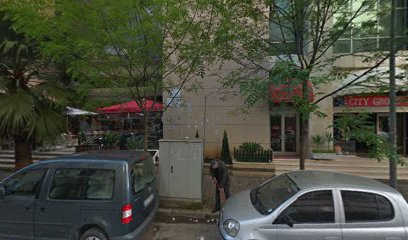
Second Hand Store
Explore Tirana's vibrant second-hand scene at the Second Hand Store, where unique fashion finds await every shopper.
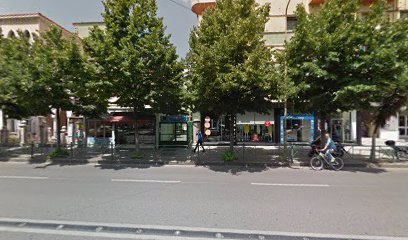
Pinko Albania
Explore Pinko Albania, a vibrant shopping mall in Tirana offering a blend of local and international brands, dining options, and cultural experiences.
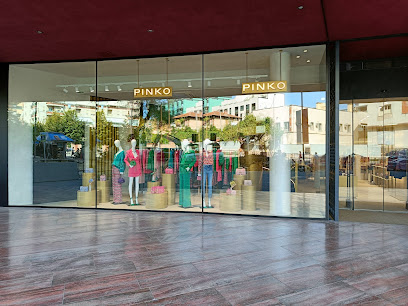
Essential bars & hidden hideouts
Radio bar Tirana
Discover the lively spirit of Tirana at Radio Bar, a cocktail haven with unique drinks and a vibrant atmosphere perfect for nightlife enthusiasts.
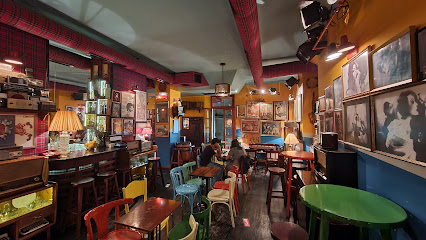
New Irish Pub
Discover the lively New Irish Pub in Tirana, a vibrant spot for craft drinks, Irish dishes, and unforgettable live entertainment.
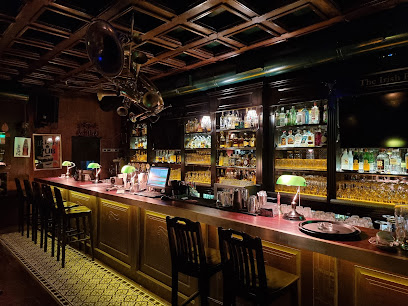
Hemingway Bar Tirana
Discover the vibrant jazz scene at Hemingway Bar Tirana, where live music and a lively atmosphere create unforgettable nights.
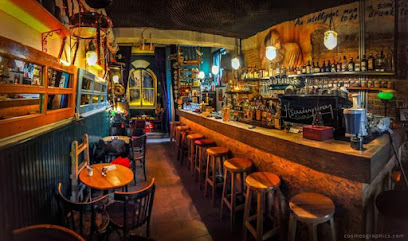
Duff Sports Bar
Discover the excitement at Duff Sports Bar in Tirana, where delicious grills and vibrant sports culture meet for an unforgettable night out.
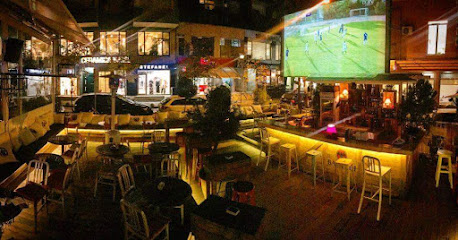
Colonial Cocktails Academy Tirana
Explore the vibrant cocktail culture at Colonial Cocktails Academy Tirana, where unique drinks and a cozy atmosphere await you.
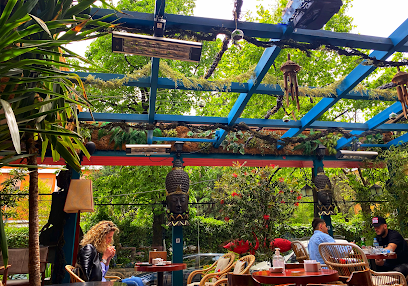
Nouvelle Vague Tirana
Discover the chic Nouvelle Vague Tirana, where unique cocktails and a vibrant atmosphere create the perfect nightlife experience in Albania.
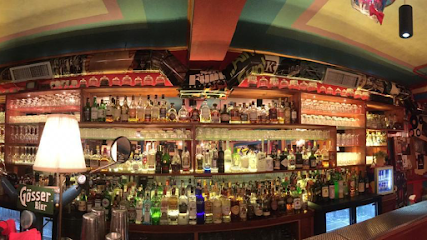
Meduza Irish Pub
Discover the charm of Meduza Irish Pub in Tirana, where Irish hospitality meets Albanian flavors in a cozy and lively atmosphere.
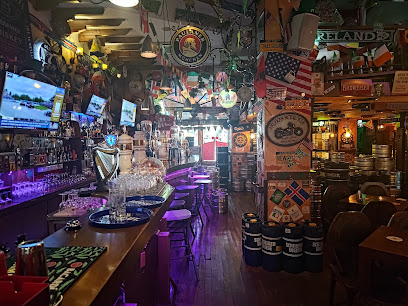
Whisky Bar Tirana
Whisky Bar Tirana: The ultimate night club and pub experience in Tirana, offering a vast selection of whiskies and vibrant nightlife.
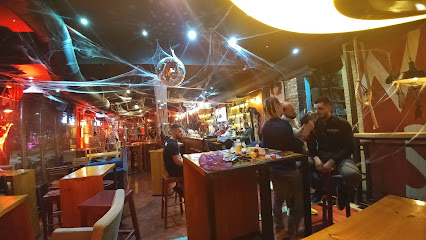
City Art
Experience the vibrant flavors of Albania at City Art, a premier tapas bar in Tirana, perfect for food lovers and cultural enthusiasts alike.
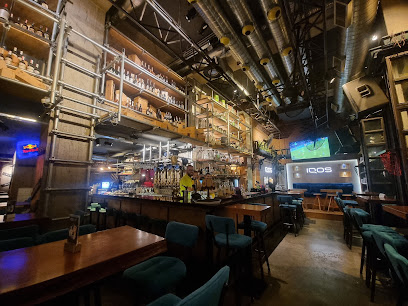
Tribeca Bar Tirana
Discover the lively Tribeca Bar Tirana, where vibrant nightlife, signature cocktails, and a trendy atmosphere await in the heart of Albania.
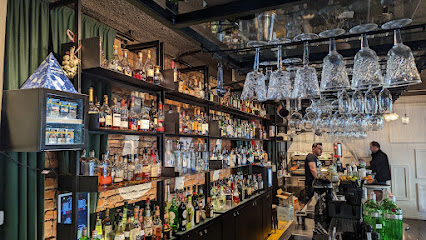
Bufe Wine Bar
Experience the best of Albanian wines and delightful bites at Bufe Wine Bar, a must-visit for travelers in Tirana.
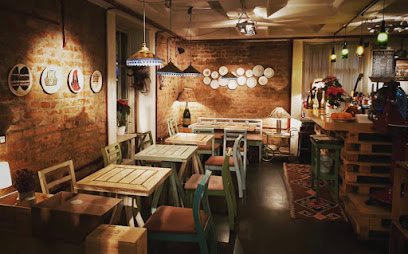
Izzy Living Tirana
Experience the vibrant ambiance of Izzy Living Tirana, where culture meets flavor in a unique pub setting.
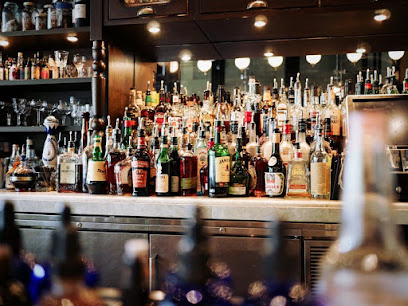
Small and more…
Discover Tirana's vibrant nightlife at Small and More…, where exceptional cocktails and delightful cuisine await every visitor.
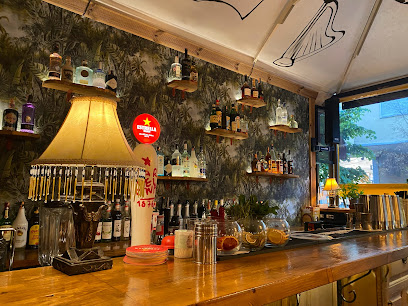
Old House Bar
Experience the vibrant nightlife of Tirana at Old House Bar, where tradition meets modernity in a cozy setting perfect for socializing.
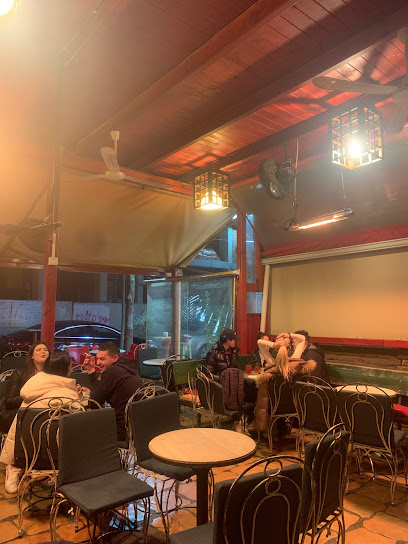
Local Phrases
-
- HelloPërshëndetje
[Pur-shen-de-tye] - GoodbyeMirupafshim
[Mee-roo-paf-sheem] - YesPo
[Po] - NoJo
[Yo] - Please/You're welcomeJu lutem
[Yoo loo-tem] - Thank youFaleminderit
[Fa-le-meen-deh-reet] - Excuse me/SorryMë falni
[Muh fal-nee] - How are you?Si jeni?
[See ye-nee?] - Fine. And you?Mirë. Dhe ju?
[Mee-re. The yoo?] - Do you speak English?A flisni anglisht?
[Ah fleece-nee ahn-gleesht?] - I don't understandNuk kuptoj
[Nook koop-toy]
- HelloPërshëndetje
-
- I'd like to see the menu, pleaseDo të doja të shihja menunë, ju lutem
[Do tuh do-ya tuh shee-ya meh-noo-nuh, yoo loo-tem] - I don't eat meatNuk ha mish
[Nook hah meesh] - Cheers!Gëzuar!
[Ge-zoo-ar] - I would like to pay, pleaseDo të doja të paguaja, ju lutem
[Do tuh do-ya tuh pa-gwa-ya, yoo loo-tem]
- I'd like to see the menu, pleaseDo të doja të shihja menunë, ju lutem
-
- Help!Ndihmë!
[Ndee-muh] - Go away!Shko larg!
[Shko lar-g] - Call the Police!Thirrni policinë!
[Theer-nee po-lee-see-nuh] - Call a doctor!Thirrni një doktor!
[Theer-nee nyuh dok-tor] - I'm lostJam humbur
[Yam hoom-boor] - I'm illJam i sëmurë
[Yam ee ser-moo-reh]
- Help!Ndihmë!
-
- I'd like to buy...Do të doja të blija...
[Do tuh do-ya tuh ble-yah] - I'm just lookingPo shikoj vetëm
[Po shee-koy vet-em] - How much is it?Sa kushton?
[Sah koosh-ton] - That's too expensiveKjo është shumë e shtrenjtë
[Kyo esh-teh shoo-muh eh shtren-jteh] - Can you lower the price?A mund të zvogëloni çmimin?
[Ah moon-d tuh zvo-guh-loh-nee chmee-meen]
- I'd like to buy...Do të doja të blija...
-
- What time is it?Sa është ora?
[Sah esh-teh oh-ra] - It's one o'clockËshtë një ora
[Esh-teh nyuh oh-ra] - Half past (10)Njëmbëdhjetë
[Nyuhm-buh-dhe-teh] - MorningMëngjes
[Muhn-gyes] - AfternoonPasdite
[Pass-dee-teh] - EveningMbrëmje
[Mbruhm-yeh] - YesterdayDje
[Dyeh] - TodaySot
[Soht] - TomorrowNesër
[Ne-sair] - 1Një
[Nyuh] - 2Dy
[Doo] - 3Tre
[Treh] - 4Katër
[Kuh-ter] - 5Pesë
[Puh-seh] - 6Gjashtë
[Gyahsht] - 7Shtatë
[Shtaht] - 8Tetë
[Teh-teh] - 9Nëntë
[Nuhn-teh] - 10Dhjetë
[Dyeh-teh]
- What time is it?Sa është ora?
-
- Where's a/the...?Ku është një/the...?
[Koo esh-teh nyuh/the...] - What's the address?Cila është adresa?
[Tsee-lah esh-teh ah-dreh-sa] - Can you show me (on the map)?A mund të ma tregoni (në hartë)?
[Ah moon-d tuh mah tro-go-nee (nuh har-tuh)] - When's the next (bus)?Kur është autobusi tjetër?
[Koor esh-teh ow-toh-boo-see tyet-er] - A ticket (to ....)Një biletë (për ...)
[Nyuh bee-leh-teh (puhr ...)]
- Where's a/the...?Ku është një/the...?
History of Tirana
-
Tirana was founded in 1614 by Sulejman Bargjini, a local feudal lord. The initial establishment included a mosque, a bakery, and a hammam (Turkish bath), which served as the nucleus for the town's growth. The area, however, has been inhabited since the Paleolithic era, as evidenced by archaeological findings in nearby areas.
-
Under Ottoman rule, Tirana expanded significantly. The city saw the construction of several important buildings, including the Old Bazaar, the Et'hem Bey Mosque, and the Clock Tower. These structures remain iconic landmarks in Tirana, reflecting the city's historical importance during the Ottoman era.
-
With Albania's declaration of independence in 1912, Tirana began to gain prominence. In 1920, Tirana was declared the temporary capital of Albania, and in 1925, it became the permanent capital. This period saw rapid urban development and the establishment of key institutions.
-
During World War II, Tirana was occupied by Fascist Italy in 1939. The occupation led to significant architectural changes, including the construction of modernist buildings and the expansion of the city's infrastructure. The Italian influence is still visible in certain parts of the city.
-
After World War II, Albania fell under communist rule, leading to major transformations in Tirana. The regime undertook extensive urban planning projects, resulting in the construction of wide boulevards, government buildings, and the iconic Pyramid of Tirana. The city was also heavily influenced by Soviet and Chinese architectural styles during this period.
-
The fall of communism in the early 1990s marked a new chapter for Tirana. The city underwent rapid modernization, with new private enterprises, commercial centers, and residential areas emerging. Efforts were made to restore and preserve historical buildings while integrating modern architecture.
-
In recent years, Tirana has experienced a cultural renaissance. The city has become a vibrant hub for the arts, hosting numerous festivals, exhibitions, and performances. Significant investments in public spaces, such as Skanderbeg Square and the Lana River promenade, have made Tirana a lively and attractive destination for both locals and tourists.
-
Today, Tirana is a dynamic city that blends its rich historical heritage with modern development. It serves as Albania's political, economic, and cultural center, with a diverse population and a growing international presence. Visitors can explore a mix of historical landmarks, contemporary art scenes, and bustling markets, experiencing the unique character of Tirana.
Tirana Essentials
-
Tirana is served by Tirana International Airport Nënë Tereza (TIA), located about 17 kilometers northwest of the city center. The airport has connections to major European cities. From the airport, you can take a taxi, which takes about 20-30 minutes to reach the city center, or use the airport shuttle bus service called Rinas Express, which operates between the airport and the National Museum in the city center.
-
Tirana has a variety of transportation options. Public buses are the most common mode of transport within the city and are relatively inexpensive. Taxis are widely available and can be hailed on the street or booked via phone or mobile apps. For a more local experience, you can use the shared minibus service called 'furgon'. Renting a car is an option, but be aware that traffic can be hectic. Bicycles and electric scooters are also available for rent and are a great way to explore the city.
-
The official currency in Albania is the Albanian Lek (ALL). While credit cards are accepted in many hotels, restaurants, and larger shops, it is advisable to carry cash for smaller establishments and markets. ATMs are widely available in Tirana, and you can also exchange foreign currency at banks and exchange offices.
-
Tirana is generally a safe city for tourists. However, as with any major city, it's important to take standard precautions. Avoid poorly lit areas at night and keep an eye on your belongings in crowded places to avoid pickpocketing. The area around Skanderbeg Square is generally safe, but be cautious in neighborhoods like Kombinat and Lapraka, which have higher crime rates.
-
In case of emergency, dial 112 for immediate assistance. This number connects you to police, fire, and medical services. Tirana has several hospitals and clinics, including the University Hospital Center 'Mother Teresa'. It is recommended to have travel insurance that covers medical emergencies. Pharmacies are also widely available for minor health issues.
-
Fashion: Do dress modestly, especially when visiting religious sites. Avoid overly revealing clothing. Religion: Do respect local customs and traditions. When visiting mosques or churches, dress appropriately and behave respectfully. Public Transport: Do validate your bus ticket immediately after boarding. Don't eat or drink on public transport. Greetings: Do greet people with a handshake. Use formal titles and last names unless invited to use first names. Eating & Drinking: Do try local Albanian dishes and accept food and drink offerings graciously. Don't refuse hospitality, as it is considered impolite.
-
To experience Tirana like a local, spend time at the Pazari i Ri market, where you can buy fresh produce and traditional Albanian goods. Cafés are a central part of social life; enjoy a coffee at one of the many outdoor cafés. Visit Blloku, a vibrant neighborhood known for its nightlife and trendy bars. For a more cultural experience, explore the city's many museums, including the National History Museum and the Bunk'Art museums, which offer insights into Albania's past.
Nearby Cities to Tirana
-
Things To Do in Krujë
-
Things To Do in Kavajë
-
Things To Do in Durres
-
Things To Do in Lezhë
-
Things To Do in Berat
-
Things To Do in Patos
-
Things To Do in Ulcinj
-
Things To Do in Pogradec
-
Things To Do in Vlorë
-
Things To Do in Bar
-
Things To Do in Tepelenë
-
Things To Do in Bajram Curri
-
Things To Do in Prizren
-
Things To Do in Gjakova
-
Things To Do in Podgorica

















